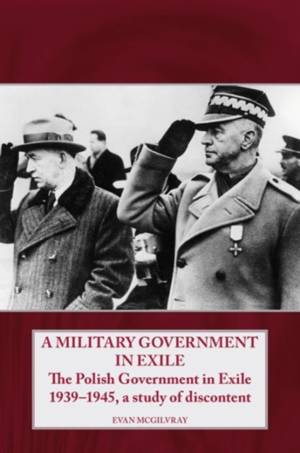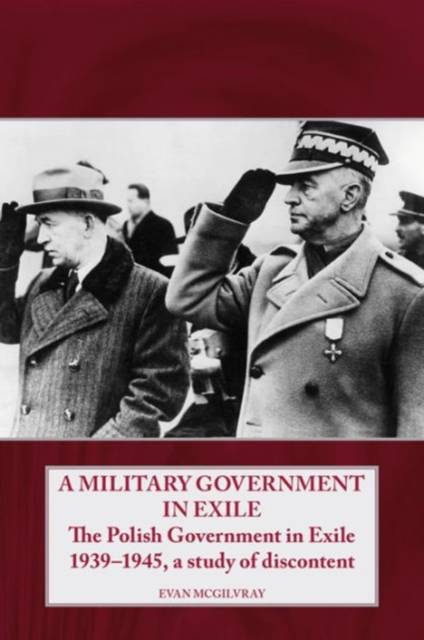
- Retrait gratuit dans votre magasin Club
- 7.000.000 titres dans notre catalogue
- Payer en toute sécurité
- Toujours un magasin près de chez vous
- Retrait gratuit dans votre magasin Club
- 7.000.000 titres dans notre catalogue
- Payer en toute sécurité
- Toujours un magasin près de chez vous
A Military Government in Exile
The Polish Government in Exile 1939-1945, a Study of Discontent
Evan McGilvray
83,95 €
+ 167 points
Format
Description
This work examines the nature of the relationship between the British Government and the Polish Government-in-Exile, 1939-1945. The relationship was extremely difficult owing to the extremity of the time and the situations of the two governments. Before 1939 there had been little contact between Poland and Britain. Between 1939 and 1945, however, the two countries were joined in a common desire for the military defeat of Germany: this was virtually the only common goal that the two governments shared; Polish ambitions to see Poland restored to its pre-war frontiers were not shared with the major allies (Britain, the USA and the Soviet Union) after 1941. The question of differing objectives caused friction between the Western allies, the Soviet Union and the Polish Government-in-Exile. As hosts the British Government was able to control the Polish Government-in-Exile but frequently found that the demands of the Soviet Government on the latter difficult to justify, although the British did so in order to maintain the unity of the alliance against Germany. However, the Polish Government-in-Exile failed to recognize its true position in the alliance: it was very much a junior partner - just another minor European power and irritant. Another problem in the relationship between the British Government and the Polish Government-in-Exile was, what kind of government was it? Between 1926 and 1939, a military clique had ruled Poland and the signs were that in exile very little had changed in the mindset of many Poles, especially those military officers who arrived in exile after 1939. This situation vexed the British Government, which sought to work with democratically minded Poles, but found this pool to be limited owing to the continuing political influence of the Polish military in exile. This attitude worsened as the war progressed until eventually the Polish Government-in-Exile lost any relevance in the war against Germany. Making full use of unpublished material and Polish sources, this is a detailed and lucid contribution to modern Polish and European history, including much information concerning the creation of the Polish Army following the end of the First World War, and the politics of the Army during the 1920s and 1930s, besides detailed coverage of its political role during the Second World War.
Spécifications
Parties prenantes
- Auteur(s) :
- Editeur:
Contenu
- Nombre de pages :
- 200
- Langue:
- Anglais
- Collection :
Caractéristiques
- EAN:
- 9781908916976
- Date de parution :
- 19-08-13
- Format:
- Livre relié
- Format numérique:
- Genaaid
- Dimensions :
- 152 mm x 229 mm
- Poids :
- 454 g







